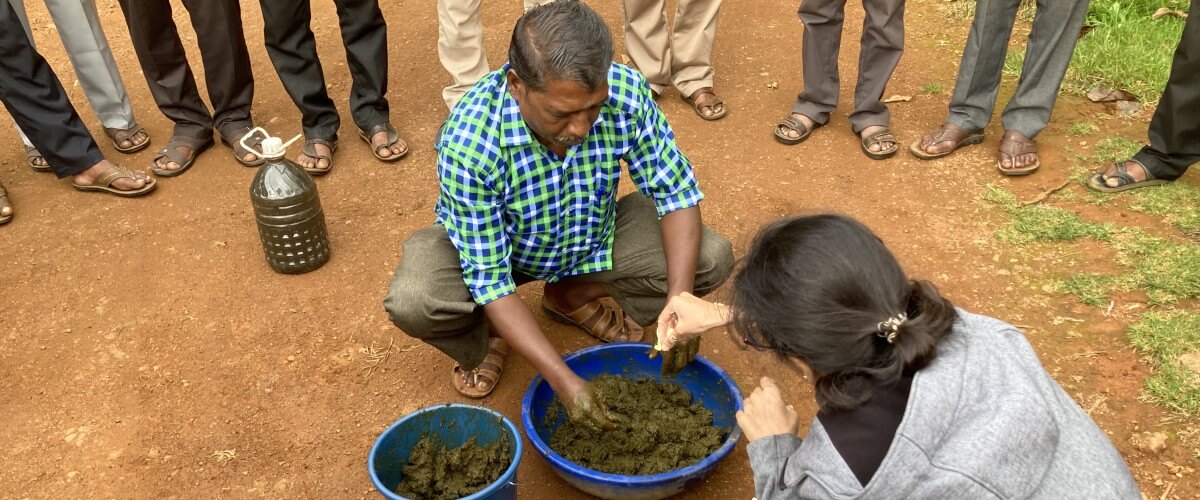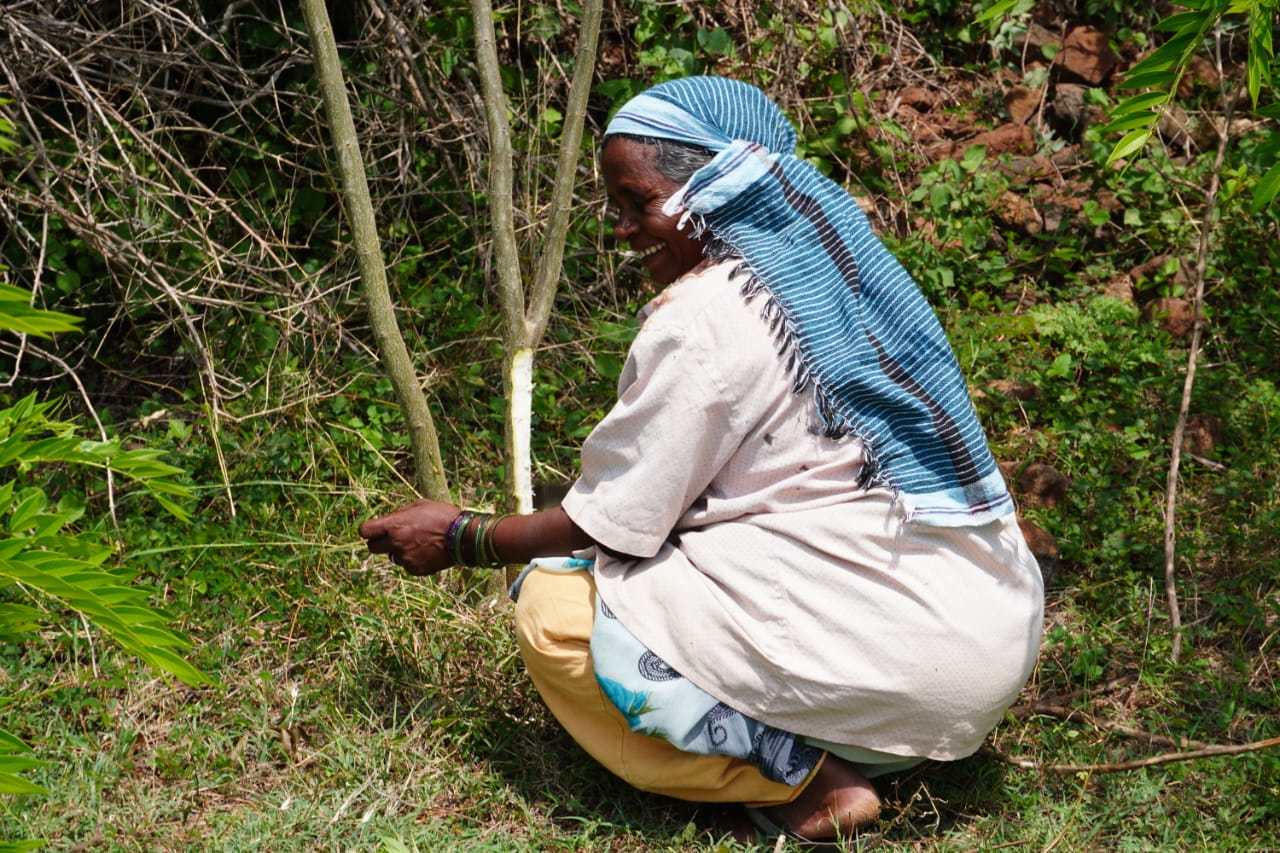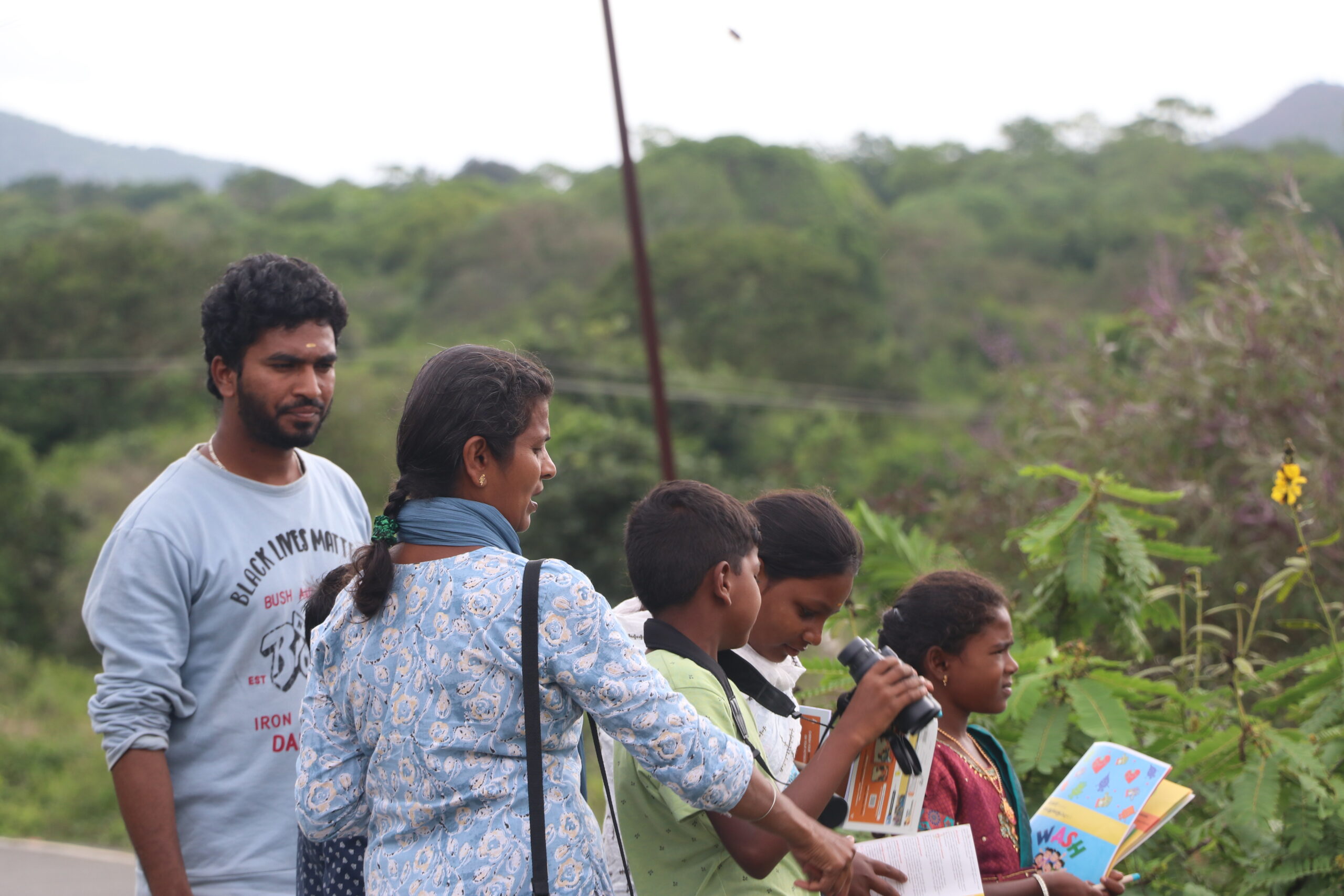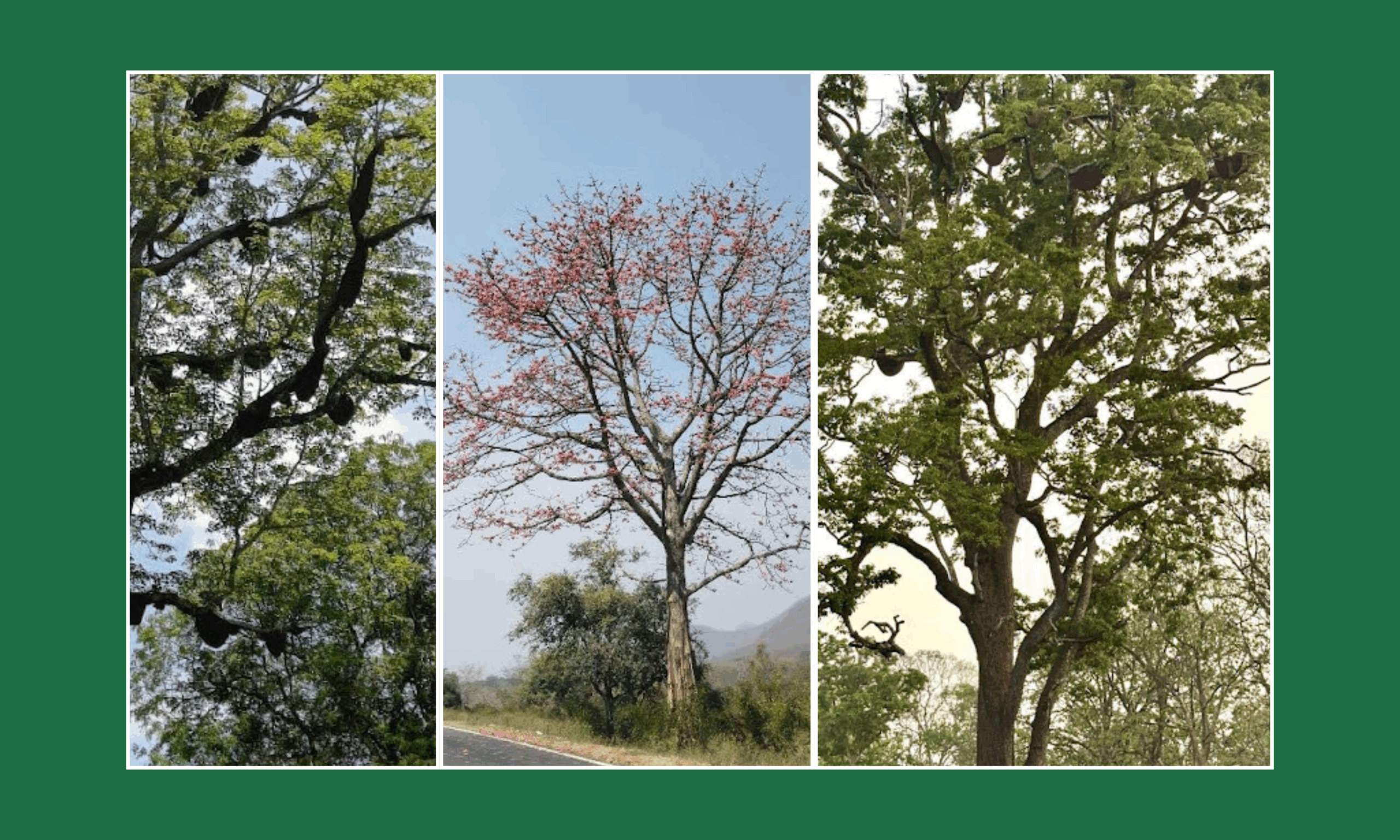September 19, 2022
By Harshavardhini Angappan
Technical Coordinator – Ecological Restoration
In May 2022, our Biodiversity Conservation team began a three-month training programme on traditional and organic farming methods for tea growers in the Nilgiris from INCDOSERVE. Also called Industrial Corporative Tea Factory, INDCOSERVE members constitute around 30,000 small tea farmers in the Nilgiris and is funding this project through NABCONS (NABARD Consultancy Services Pvt Ltd).
It was carried out in two phases, basic and advanced. Around 400 people were part of the basic training, of which 100 were selected for the ongoing advanced training. Post the second phase, they will be encouraged to carry forward their learnings to a wider network of potentially thousands of tea growers.
Over the course of the training, participants immerse in practical workshops across various subject areas:
- Understanding and working with soil
- Water in hill wetlands and quality parameters
- A biodiversity-friendly approach: agroforestry
- Natural pest management
- Meeting quality and certification benchmarks
Leading the project is Robert Leo, an Advisor at Keystone, with his decades of invaluable experience and knowledge in traditional and organic farming methods. He has been working with indigenous beekeepers, honey-hunters and farmers to promote sustainable practices since the 1990s. Shiny Rehel, Programme Coordinator of the Biodiversity team, has also spearheaded many of the workshops. A key contact is field staff member and tea grower Shivaraj, who demonstrates at the trainings, having been practicing organic farming for 10 years.
“We need to work with stakeholders that are an intrinsic part of the landscape. This means practices need to align with environmental and community values, the fact being that nature and people are always the primary stakeholders,” says Shiny.
The involvement of NABCONS stems from a crucial need for a widespread shift to organic farming. Tea factories have been reeling from the consequences of products that don’t meet quality benchmarks – a major reason being that farming practices are not soil-friendly, water-friendly, biodiversity-friendly… and thus not tea-friendly.
“The current approach to tea cultivation seems to have forgotten the value of living soil. [It] is usually done on sub soils without much organic matter. Productivity is maintained through the addition of fertilizers, weedicides etc. In a good organic field, the farmer will always strive for the optimal, living soil ecosystem,” write Dr. Ranil Senanayake and Sachithra Harshana Yapa, in the Handbook of Forest Garden Tea Growers. Since 1972, India’s Tea Revolution has seen swathes of rich habitats razed over, to be replaced by tea plantations that neither revive soil and groundwater nor support biodiversity. In this critical time of environmental change, promoting methods of farming that work with nature rather than against is of utmost importance.


















